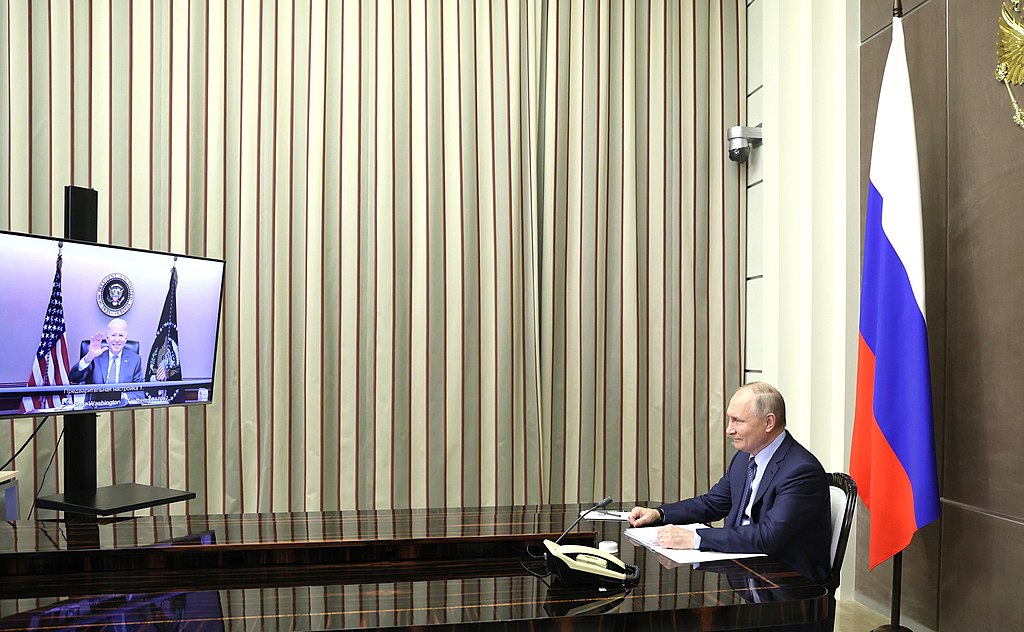Tensions are rising between Russia and Ukraine. Various Western politicians, diplomats and analysts warn that a full-scale war between the two countries is a matter of time. But is the situation in Eastern Europe really that hopeless?
Kremlin spokesman Dmitry Peskov stressed on December 2 that Ukraine’s intention to restore control over Crimea is a “direct threat” to the Russian Federation. Ever since the region re-joined Russia in 2014, Kiev has been openly saying that it would never recognize Moscow’s annexation of the peninsula. Indeed, Ukraine never gave up its plans to eventually restore sovereignty over Crimea, but until late 2021 such Ukrainian ambitions did not seem to worry policy makers in Moscow. Why is Russia now so worried about a potential confrontation with Ukraine?
Shortly after Peskov’s statement, Russia announced that has arrested three members of Ukraine’s security service, who were allegedly planning an attack on the Russian Black Sea Fleet in Crimea. Such incidents are nothing new. In the past, Russia’s Federal Security Service reportedly foiled several attempts by Ukrainian forces to carry out attacks in Crimea, but those actions never resulted in such dramatic tensions between Moscow and Kiev. The Kremlin now seems to be worried not only about the situation in Crimea, but also about the ongoing conflict in the Donbass region in eastern Ukraine. Russian officials point out that the probability of a new conflict in the Donbass is “very high”, even though the war there has been going on for years.
Since 2015, when the Minsk Agreement was signed in the Belarusian capital, the coal-rich region has been stuck in a state of positional warfare – a form of warfare conducted along permanent and fortified front lines – between Western-sponsored Ukrainian Army and Russia-backed Donbass forces. Although the peace deal effectively suspended offensive military operations, it never completely ended hostilities. The fire continued to smolder, waiting for someone to add fuel and, as Russian Foreign Minister Sergey Lavrov said, “return Europe to military confrontation nightmare”.
In an attempt to prevent such a scenario, on December 2 the Russian diplomat told the US Secretary of State Antony Blinken that it is time to transform the right words into “long-term, legally binding security guarantees”.
As Russian President Vladimir Putin recently emphasized, Moscow will seek “concrete agreements that would rule out any further eastward expansion of NATO and the deployment of weapons systems posing a threat to the Russian Federation in close proximity to Russia’s territory”.
Even if the US agrees that there will be no NATO expansion eastward – which does not seem very probable given that such an agreement would mean that Biden has bowed to Putin – there is absolutely no guarantee that Washington would implement the deal. It would certainly not be the first time the West has “deceived” Russia and its “naïve” leaders.
Western powers, for their part, accuse Moscow of violating the Budapest memorandum signed in 1994, which committed Russia to respect the independence and sovereignty and the existing borders of Ukraine. From the Western perspective, the Kremlin violated the memorandum the day it incorporated Crimea into the Russian Federation, which is why it is pointless to make any deals with Moscow until it returns the territory to Ukraine.
“I don’t accept anyone’s red line” the US President Jo Biden said ahead of the December 7 virtual summit with Putin. In other words, in the Russo-American tango, Moscow has to continue playing the role of a junior partner. Biden has clearly demonstrated that he does not take Putin’s empty threats and “red lines” seriously.
Still, the US claims Russia has deployed thousands of troops and military equipment near the Ukrainian border, while the Kremlin said that “half of the Ukrainian army” has been deployed to the Donbass, allegedly preparing to attack the Russia-backed self-proclaimed Donetsk People’s Republic and Lugansk People’s Republic. Over the past seven years, the West was the one that often warned of Russia’s alleged plans to invade Ukraine. Now Moscow seems to have adopted the Western new Cold War narrative, warning of an “imminent” Ukrainian military offensive in the Donbass. At the same time, both Russia and the United States insist that there is no alternative to the full implementation of the Minsk Agreement, although in reality the document became a dead letter a long time ago.
Does that mean that the war between Russia and Ukraine is really inevitable? Not unless Ukraine, supported by the West, starts a large-scale military campaign against Russia-backed Donbass republics, or if a serious incident – be it staged or a real one – occurs. In that case, Moscow is expected to intervene, although such an intervention will likely be rather limited. But even a limited incursion into Ukrainian territory will result in severe anti-Russian sanctions, a move that could have serious consequences for the Russian economy. Thus, for Moscow, there are unlikely any easy options regarding Ukraine.
According to Lavrov, Russia maintains the right to choose ways to ensure its legitimate security interests, given that “the further advance of NATO to the East will definitely affect the fundamental interests of Russia’s security”. From the purely military perspective, it does not make much difference if the US missiles are deployed to NATO member Latvia, some 650 kilometers (403 miles) from Moscow, or to eastern Ukraine, 740 kilometers (460 miles) from the Russian capital. It is extremely improbable that NATO would ever fire missiles at Russia, just like Russia would never dare to attack any NATO members.
Therefore, despite fears, the United States and the Russian Federation will not fight a direct war over Ukraine. Continuation of the proxy conflict in the Donbass is not out of the question, though.
Image credit: kremlin.ru

